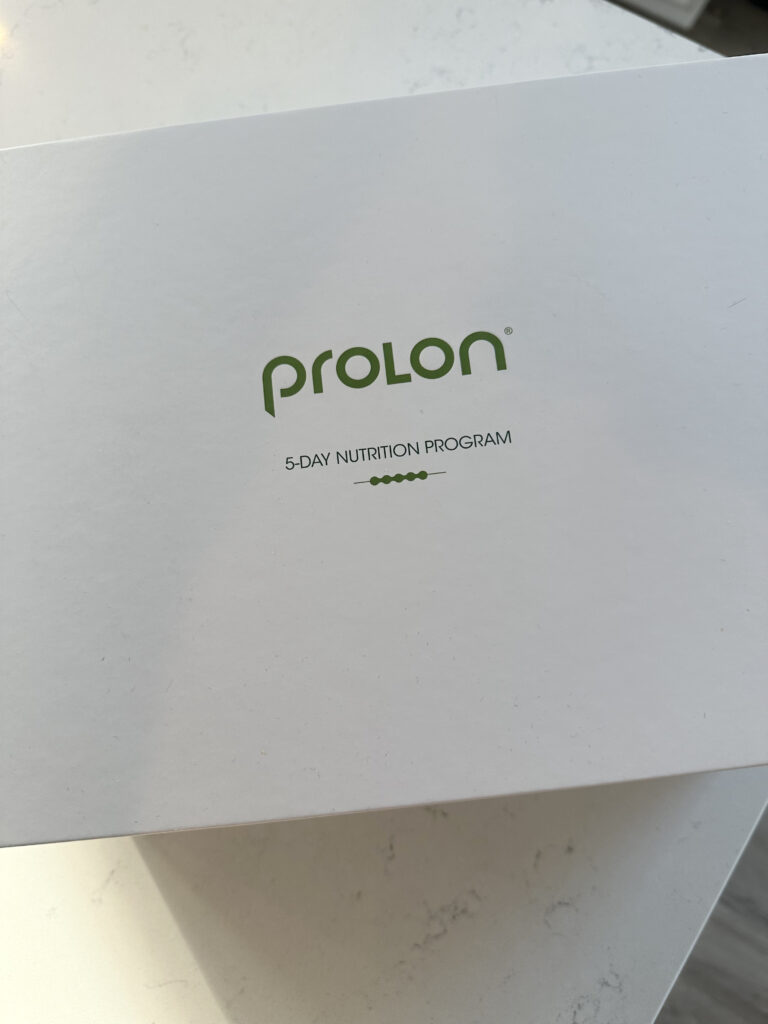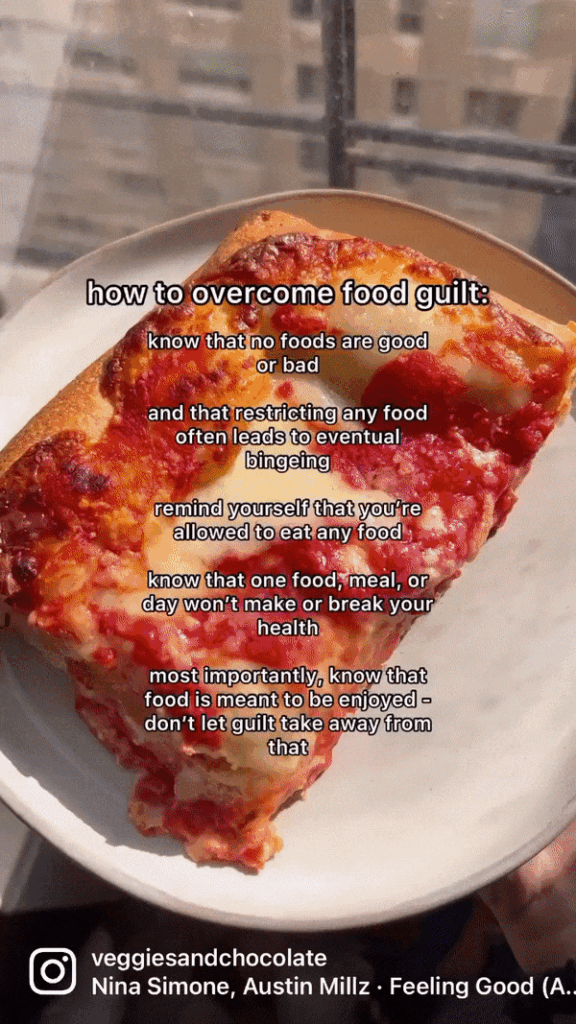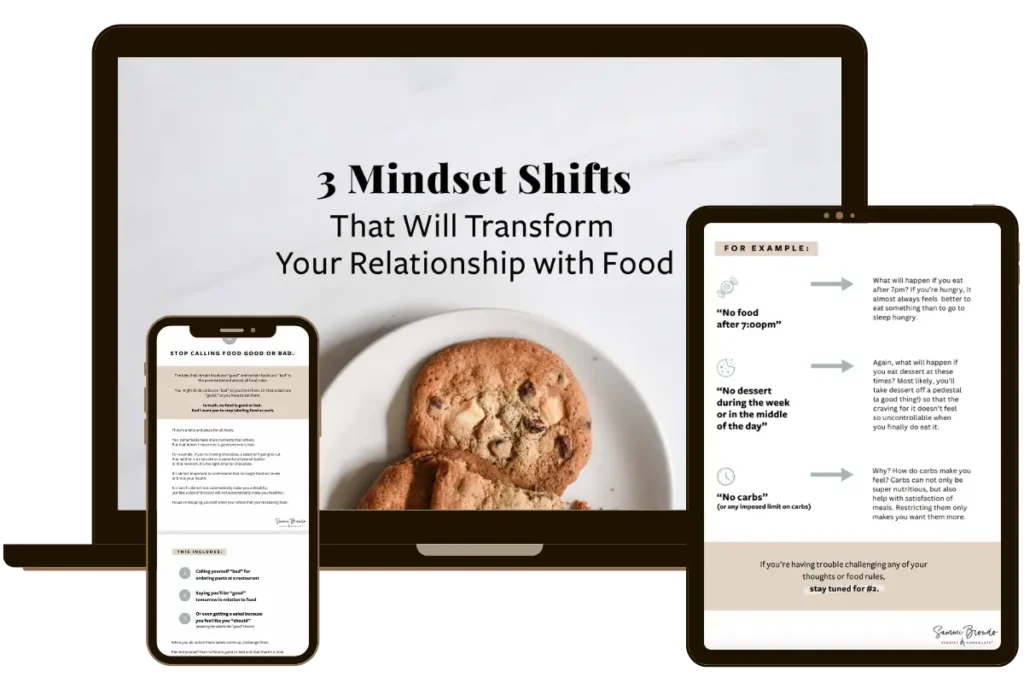
Anyone feel else feel like as soon as Halloween ended, we entered full blown holiday season?! The shift was crazy. And you know what else comes with up holiday season: diet talk. And it’s also pretty crazy.
This time of year in particular can really be a rollercoaster when you’re working on your relationship with food.
The holidays themselves – Thanksgiving, Christmas, Hanukkah and/or whatever else you celebrate – are, of course, filled with traditional foods and social gatherings.
Then, in January, the diet industry comes at us full force about “starting the new year off right” or “making up for the holidays.” (Insert eye roll here – you definitely do not need to do anything like that).
And all along the way, I usually find that there’s just more diet talk than usual around this time. More food-centric social gatherings also mean more opportunities for people to talk about what they’re eating. It’s a common time to bring up diets, when diets are starting or how someone is “so bad” for eating XX food.
And, if you’re seeing family or friends you haven’t seen in a while, it’s also unfortunately common for body comments to be made.

When you’re working on your relationship with food, these occurrences can feel like total roadblocks in your journey. They probably feel hard to avoid, triggering or just plain upsetting.
You can totally navigate this though. Here are a few of my favorite methods to go about it.
1. The subtle method: change the subject

This is a personal favorite method when I just don’t feel like getting into it. When someone brings up their diet, makes a body comment, or comments on what you or someone else is eating, simply change the subject.
For example:
Random aunt you haven’t seen in 2 years: “ugh, I really shouldn’t be eating this cookie.”
You: “so, do you have any plans for the holiday?”
Pro tip: most people are happy to talk about themselves, so asking someone a question about themselves is usually a great way to switch topics.
It’s subtle, but takes the focus off of food and diet culture.
A lot of times, too, I find that this method is just the easiest instead of having to explain yourself and get into it. But, if you want to get into it, I totally applaud you. Keep reading for more on that.
2. Leave the situation: walk away

Maybe you tried changing the subject and it just went right back to diet talk. Or maybe, you don’t even feel like continuing conversation with these people. Another easy option: walk away.
I’m totally not suggesting that you rudely turn your back in the middle of someone speaking. Instead, find a way to easily slip out.
If it’s a group event, excuse yourself to go get more food or water. If you’re with just a few people, maybe you notice your phone buzzing or you need to go make a call. Walk away and let the diet talk fizzle. Hopefully, once you’re back, they’ll have moved on to other topics.
This is another easy-ish avoidance method that lets you get away from the conversation without having to expend energy explaining why you’re just into this conversation.
3. The bold method: say something

If you’re feeling up for it, you can also say something when these things come up.
There are 2 ways to go about this: 1) explain to the person why what they’re saying isn’t helpful in general, or 2) explain why it isn’t helpful specifically for you.
In the former, you can explain how someone isn’t actually “bad” for eating a food. Tell them that if they’re enjoying the food they’re eating, then it’s not bad. Then it’s probably actually a good choice. Or, take it even further and you can explain how talk like this isn’t really a positive experience for anyone.
Here’s the thing to remember though: people only change when they want to change. Someone talking about how bad they’ve been for eating certain foods might not be ready to make a change with their relationship with food. And, in that case, explaining why those comments aren’t helpful may not be perceived well.
On the other hand though, you can also explain how comments like these aren’t helpful for you personally. Gently, explain that you’ve been working on your relationship with food and not classifying foods as good or bad. You can say that talk like this isn’t helpful and “tell me about that trip you just took instead!” to change the subject.
Explaining something this way takes the focus off of the person saying it and onto you. Again, it’s a bolder method. But, hopefully, if this person respects you, they’ll also respect your boundaries.
This method boils down to your own comfort level and who you’re with, of course. But, if you feel like the people you’re with will be receptive to it – and might even benefit themselves from it – go for it.

It’s so amazing that you’re working on your relationship with food and avoiding diet culture-y conversations like the ones above. Unfortunately, not everyone is in the same boat and, as I mentioned, we can’t change people who aren’t looking to change.
So, instead of exhausting yourself lecturing someone every time a negative topic comes up, use these methods above to help make the situation easier for you.
We can’t control what other people talk about and do, but we can control how we respond to it.
Want more tips on creating an easy, sustainable healthy relationship with food? Check out my membership program, All Foods Fit, with 12 thorough lessons to teach easy ways to create a healthy relationship with food. Or, check out my e-book, 7 Days to Make All Foods Fit, to learn a step by step guide to create a healthier relationship with food in just 7 days.













